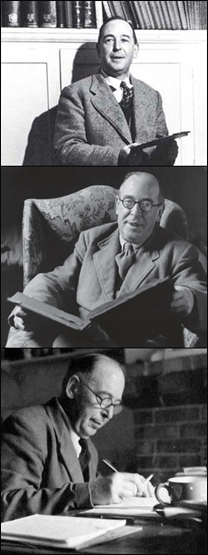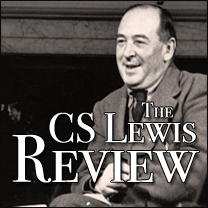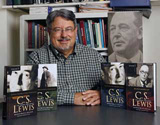
C. S. Lewis and Time Travel Narrative
January 6th, 2010 | Skip to comments
I recently posted this series of questions to my Linked-In group, “C. S. Lewis Readers and Scholars Association,” and thought I might share it with earnest readers of this blog for their reflections and insights:
C. S. Lewis and Time Travel Science-Fiction — is there a Christian view of time travel that permits its orthodox “reception and use”?
In view of the latest Star Trek movie’s new time travel thread: I ask this distinguished group, “What are the theological implications of time travel themes? And is there a feasible Biblically-honoring version, or are all time-travel conceptualizations inherently and implicitly anti-omniscient-monotheism, and anti-trinitarian in particular?”
For instance, do all time-travel premises presumptively indulge the human fantasy of self-aggrandizing re-insertions of oneself in alternate histories to avoid divine justice and undermine divine sovereignty with impunity? Do such narratives necessarily presume time-travelers are thereby equipped with noetic advantages (past, present, or future) that are, in fact, serpentine in origin (i.e., isn’t that what the original FALL is about anyway?—gaining and presuming to use forbidden knowledge for which we are not suited or ready for?) Is “traveling” in time tantamount to necromancy, i.e., seeking states of being and ill-begotten short-cuts to maturity [“godhood”] that cannot be attained through abstract knowledge alone, hence a gnostic error? Is the time-delimited nature of human life (“time’s entropic nature”) the fatal flaw in ever conceiving of a bonafide Christian S/F universe that could feature a reputable, theologically-defensible version of time travel? Is the Son of God ever (e.g., his possible theophany in the fiery furnace) depicted as a “time traveller”? Nothing in CSL’s Space Trilogy itself seems directly to embrace or challenge or upset the extant “space-time continuum” per se as many, if not most secular “time machine” stories do. Ransom may have one foot in eternity, but he is also constrained by time. Aslan goes to and fro in Narnia as he pleases, transverses multiple worlds, but when the Pevensies return from their first adventure, it’s like nothing much has changed in Terra’s years. So is there a useful difference between “normal time-travel” and inter-dimensional travel, i.e., BETWEEN worlds/dimensions, that only incidentally affects or deflects time within just one of those worlds/dimensions?
Dear readers: I am interested in your reflective musings! — Bruce




Provocative questions. My sense is that much of science fiction, whatever the toolset evoked, aggravates the same set of convictions. Even Lewis’s.
But my proposed solution is very simple, if not simplistic. Lewis referred to his Narnian tales as “supposals.”
Maybe that’s the easiest escape hatch for a person of Christian conviction, contending that his or her “supposal” is offered in order to illustrate the perils of time-traveler-type theology.
Which is to say that Jesus, the Son of God and of Man, the second person of the Trinity, has, in his inimitable way, already single-handedly dealt with time and its encumbrances and cruelties in his role as the “lamb slain before the foundation of the world.”
Jesus is He who entered time-space human history both to reveal eternity’s infinity and to accentuate (and remedy) the ruptured entropic destiny of time-space. This is how I read Revelation 20-22.
The countdown that began at Genesis 3:15 (treating “3:15” as a tropic registry of time), becomes the only “clock” worth subverting, and He’s already accomplished it for us.
–Selah! 😉
Comment by Trevant — 6 January 2010 @ 3:41 PM
It seems to me that the problem only exists to the extent that one feels that God is a time-limited being. Doesn’t Lewis place Narnia and his other worlds under different times and physical realities as a means of noting to believers that God is the author of all things not the subject of them? In Mere Christianity he speaks to this point in the chapter “Time and Beyond Time.”
Comment by Rob — 17 January 2010 @ 5:40 PM